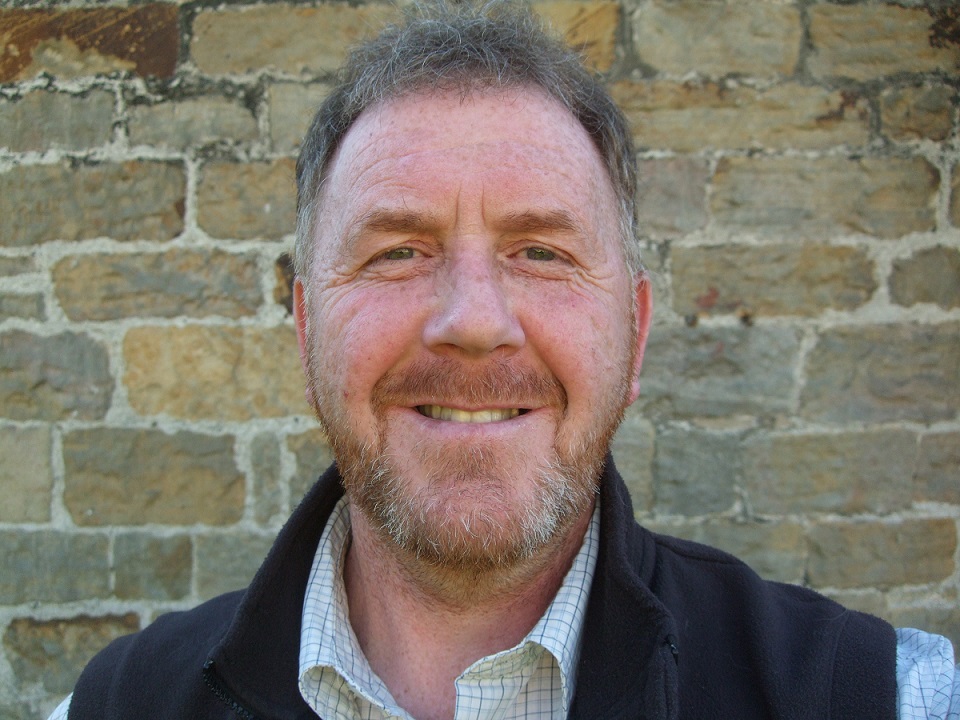Adviser spotlight: Ian Cairns – carbon audits
3 July 2018Name and profession: Ian Cairns, Professional Farm Adviser 
Specialism: Carbon audits
Ian Cairns, is a qualified farm adviser, with over 20 years’ experience in professional consultancy. He works with farmers and crofters across Scotland, advising them on how to get the best out of their business through improved technical performance. Since 2017, he has been delivering carbon audits on behalf of FAS, as part of its Beef Efficiency Scheme (BES).
Here he shares his thoughts on carbon audits and the potential benefits to farm owners.
What is a carbon audit?
‘A carbon audit looks to quantify the level of emissions produced by a business or organisation and identify the sources of those emissions. In identifying areas of high emissions, the carbon audit highlights opportunities where there is potential for the business to make efficiency improvements and possibly save money. It also allows businesses to be benchmarked against others in the market – gauging performance.’
Approximately, how many carbon audits have you carried out on behalf of FAS/BES?
‘I think I’ve carried out between 55 and 60 audits in the past year, mainly over the winter months.
‘Carbon audits are a requirement of BES, but are available free of charge to all farmers in Scotland via FAS.’
What kind of farming businesses do you normally work with?
‘I work mainly with beef, sheep and upland farms – looking specifically at areas to do with productivity and business performance.’
Why are carbon audits beneficial to farming business owners?
‘Technical performance is probably of most direct relevance to farmers. Once they are taken through the information on the online AgRE-Calc© [agricultural resource efficiency calculator] programme, they quite quickly engage in discussion about business performance. Although the work is essentially about a farm’s beef carbon footprint – we still have to find out about the farming business as a whole.
‘Farmers are quite used to talking about calving percentages (i.e. how many calves are reared compared to how many have gone to bull). However, a carbon audit also takes into consideration the liveweight of calves at weaning, growth rates and what weight the animals were at sale. Such factors are important when assessing the technical and financial performance of the business.
‘Farm owners are usually surprised to find that good technical performance often means good carbon performance as well.
‘Farmers can enter their details directly into AgRE-Calc© and come up with a result. However, I believe the benefits of having a third-party adviser are that the performance of each enterprise can be discussed, the farmer receives professional input with decision making and the quality of the information being recorded is sense checked.
‘It’s important to remember that AgRE-Calc© uses mechanical calculations, so whatever goes in will impact the information that comes out. In the worst-case scenario, if incorrect or incomplete information is put in, then a less relevant result will come out. Therefore, the auditing process is very important. It can also provide an early indication of what the outcome of the audit is likely to be. For example, if a significant number of calves die before weaning, then it is likely the beef enterprise will have poor carbon efficiency because it is under-performing technically.’
What help can you provide to someone looking to carry out a carbon audit on their business?
‘One of the main benefits we can offer is free ‘on-farm’ advice to farmers. Through FAS, farmers can apply for £500 of funding for an adviser to deliver a carbon audit (the farmer just pays the VAT), so there’s really nothing to lose.
‘Carbon audits enable farmers to discuss key issues with an adviser who can provide specific guidance on particular topics. This can make a real difference to the technical and financial performance of the business.’
Why should business owners take advantage of support schemes like FAS/BES?
‘They provide Scottish farmers with a great opportunity to get independent advice at no or low cost. And, with Brexit on the horizon, such opportunities are more important than ever.’
What advice would you give to business owners interested in applying for support?
‘A good place to start is the Farm Advisory Service website – it has a lot of useful information. Contact the helpline as well to find out more about what is on offer.’
For information on carbon audits or the wider support available through FAS, please contact advice@fas.scot, call 0300 323 0161 or visit www.fas.scot.
Sign up to the FAS newsletter
Receive updates on news, events and publications from Scotland’s Farm Advisory Service

